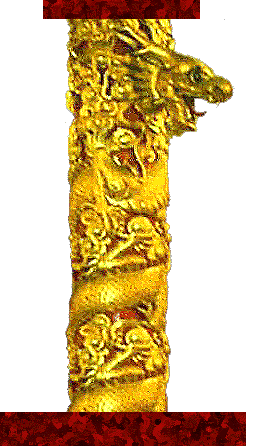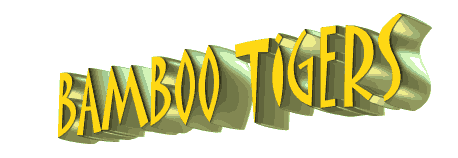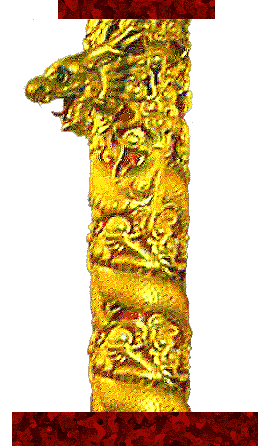| |
The Task Force felt they had got everything they could out of Stuart. His arrest and confession were considered a job well done. Foley was lauded for his brilliance in bringing Stuart to an irresistible point of confession. Much praise also was given to Ron Schneider for allowing Stuart to talk so long about duress. Levine could argue in the trial that the boy had been given the opportunity to say absolutely everything he wanted to about the defense of duress. Nobody put any words in his mouth. It had all come from him, and Levine would contend that what Stuart had said did not legally constitute duress.
Duress is a defense not favored of the law because it says the guilty person will be excused if he was forced to do something under fear of imminent death or serious physical injury. It's not unlike entrapment in the sense that in entrapment the defendant says, "Yeah, I did it, but I should be excused because the methods the government used were more reprehensible and shouldn't be tolerated, and I, a guilty person, should go free." Duress is basically the same thing: "Yeah, I did it, but I had to do it out of fear of death."
Levine was satisfied that--despite Stuart's defensive protestations--they would be able to convict him.
From Santa Rosa, Rudloff and McKenna maintained steady contact with Levine and the Force by telephone. Their teams were staking out Bert's tattoo shop in town, and his home in nearby Rohnert Park. Finally, in late afternoon, they scored; Bert arrived at the shop.
He was confronted by Jim Smith, who said: "I'm from A.T.F. We've got you for selling dynamite to our undercover agent. We've got you cold." And then, as if that were not bad enough: "This is not the least of your problems. This is McKenna from the Gang Task Force in San Francisco. We know the Golden Dragon was launched out of your house. We've just arrested one of the shooters, who has told us everything. Would you like to talk to us about that?"
It's not hard to imagine being in Bert Rodriguez's shoes at that moment, rocked by such a combination punch. After recovering from the shock, he asked to be allowed to talk things over with his wife, Sandy, who was still at work in The City (San Francisco). McKenna gave him permission. Bert was placed under arrest on charges of conspiracy to possess and sell explosives. He was then taken to the local police station to wait for Sandy. The stake-out unit at the Rohnert Park house would advise her of the situation when she returned home, and take her to Bert.
As McKenna, Smith, Rudloff, and their crew set off with the tattoo artist for their unmarked cars, a Chinese kid came into the shop through the back door. Hearing the commotion out front as the plainclothes agents and cops left with Bert, the boy ran outside in time to see them driving away. "What's happening?" he shouted, on the run toward the vehicles. "Hey, Bert, where you going?"
"Who's that?" asked one of the agents. "Should we stop?"
McKenna waved impatiently in the direction of the kid. "Hell, no, let's go! We've got important things to do!"
The cops drove away, leaving the boy standing puzzled in the street.
At the station, the arrest party waited for Sandy to show. It was worth the wait. When Bert's wife came in, she and her husband had their talk. On the heels of that, he laid out everything and agreed to cooperate by testifying or whatever he had to do. To the detective and the D.A., it sounded good.
The officers had taken along a photo spread, and Bert picked out for them the people who were present at his house on the night of Saturday, September 3rd. He agreed to cooperate. Because his crime, the setting up of the dynamite sale to undercover agent Cornell "Sam" Lee, had taken place in Santa Rosa, which was in Sonoma County, Levine and the Task Force in San Francisco would have to negotiate with the Sonoma District Attorney in the prosecution of Bert's case.
One of the factors influencing Levine's strategy in dealing with Bert was the fact that San Francisco had some jurisdiction in his prosecution because some of the overt acts, such as telephone calls with "Sam," had occurred there. But Levine and Ed Rudloff, whom he had hand-picked to work with him, had little interest in going after Bert on the dynamite charge. The crime of illegal possession was a felony, but not a heavy one as felonies go, and they figured that, in a small community like Santa Rosa, it would be taken a lot more seriously. Also, the jury wouldn't be nearly as liberal as in San Francisco. They'd hear about this terrible gang murder that Bert was related to, and probably convict him. Then it would be easier for Levine and Rudloff to snag him as a Golden Dragon witness.
There was a drawback, however, in Levine and party's estimation; they would have to negotiate with the Sonoma County D.A., Gene Tunney, politico son of the famous boxer. Such negotiation brought in certain factors such as loss of control over the case because they couldn't tell Gene Tunney what to do. They could only suggest what they'd like to see done.
Later that night, while making his report at the Gang Task Force office, McKenna thumbed through the photo spread he'd had with him in Santa Rosa. A familiar face stared back from a mug shot. "Oh, God," cried McKenna as the light dawned, "that's him! That's the kid at the tattoo shop!" Levine, Foley, Simmons--everybody crowded around to look at the photograph. McKenna slapped his forehead and groaned. "I had him in the palm of my hand--Peter Cheung!" Peter's warrant of arrest for harboring Gan Wah Woo was still outstanding, and there were other charges now.
Wayne Yee was arrested on the same day. In his usual haughty way, he asked to see a magistrate at once, perhaps expecting to be taken to one in San Francisco, site of all his political clout. Surprise! As with Bert, the dynamite crime was committed in Sonoma County, so thereunto "the boss" was taken wikiwiki--as Cornell Lee might have said "quickly" in Hawaiian. Wayne didn't know many folks up there. His photographs snapped in company with San Francisco Police Chief Charlie Gain and in the office of D.A. Joe Freitas--with Chinese Youth Alternatives' cohort, Gary Pang, beaming a big smile--meant nothing in rural upstate Sonoma.
Wayne had nothing to say upon arrival in Santa Rosa that evening. It didn't matter. Again as with Bert Rodriguez, there would come a time later to turn up the heat. No word had filtered through to the Task Force that Wayne Yee had been involved in the Golden Dragon, but there were a lot of things they felt he could possibly have known about it. At the time, it seemed a logical assumption that he knew something about the Dragon beforehand or, certainly, soon afterward. They remembered the theme of his defense-fund-raising party for his bank-robber buddy who never stood trial. They suspected he would not have had to ask the same question about the Golden Dragon: "Who Done It?"
No matter how one looked upon March 24th by the time it came to an end, it had been a dynamite Friday for the Dragon Force, a worthy one on which to scramble the eggs the investigation had for so long carried gingerly in one basket. Law enforcement had a helluva feast on their three-egg omelette, despite the meagerness of the portions, per man. There was the arrest of Stuart Lin, spiced with a full confession; the promise of a vicarious prosecution for Bert Rodriguez and the "bad" Wayne Yee, and, for exercise after dinner, a little shaking of the wall of silence upon which Peter Ng had now to sit less smugly than before.
Remaining were the after-dinner speeches and the applause. They thought, therefore, of the press corps and the public.
The Task Force had been very anxious that the press not know about the arrest of Stuart Lin until after his confession. There would naturally be a lot of clamor, and lawyers, hardly near extinction like California's condor, might have descended too quickly for the Force to get a useful confession, if any at all. A certain cynicism had been required to get the job done right.
Even then, the shared sentiment was not to tell the press too much.
There are guidelines published by the American Bar Association. One of these deals with "fair trial and free press." It is relevant to what the prosecutor should and should not do by way of discussing criminal cases. It can taint a defendant's case by influencing potential jurors, for one thing. Having handled the legal aspects with delicacy thus far, Levine was mightily afraid of tainting Stuart's case in any way.
He went to Freitas late on the 24th and insisted that no more be publicly stated than that allowed by the A.B.A.'s guidelines. He wanted it written in the press release that no more information would be made available until the case was over. Of course, Levine knew that would never happen, but he felt the public position of the S.F.P.D. and the D.A.'s office should be in complete accord with the A.B.A.'S standards for fair trial and free press.
Freitas, to his credit, agreed to that, as much as he may naturally have wanted to say a lot more. Also, Dan Murphy of the Gang Task Force and Police Chief Charles Gain, likewise to their credit, went along with it, as did Clem D'Amicis. All those gentlemen would have been happy to start publicly patting backs and to noise it about that getting Stuart's confession was great stuff, and now that they had the ball, this is how they were going to run with it, et cetera. None of them did that.
The press release drawn up was very circumspect. It simply said that Stuart Lin had been arrested, how old he was, where he lived, what he was charged with, that he was a student at Galileo High School, and that's all that would be said about him and the case until its conclusion. It was issued jointly by Freitas and Gain.
The press got its release and jumped up and down quite a bit--not for joy especially, but because that was ALL they got. Miffed, the newspapers ran the breaking of the Golden Dragon case as an "Oh, yes, and this happened yesterday, too" sort of thing. Of course, something really big did happen then to knock Stuart and the massacre off the front pages--the "Meter-gate" case. It was not till a few days later, when the parking meter exposť slipped into another perspective, that the real after-dinner speechifying began, along with tentative rounds of applause.
When the reporters got over their chagrin and put their thinking caps on, they also began to see the connection between that odd arrest of public figure Wayne Yee and his tattooist friend, way out in the sticks, and the arrest of this Chinese high-school kid here in The City.
Nobody had ever heard of Stuart Lin before. Even among the gang kids, his was not a well known name. And here he was a shooter in the Golden Dragon! His name hadn't even been mentioned as a suspect! The Gang Task Force shook one of its hands with the other. They had matched the wall of silence stone for stone. Nary a word had got out before the proper time, all the way from late September, when Gan Wah had come up with Stuart's name, to late March. All of a sudden--BOOM!
They figured it shook the hell out of the gangs: "Holy smoke! This Gang Task Force is something else! Maybe my ass is next!" That, of course, was precisely the image the Force had endeavored to propagate all along. They wanted the kids on the street to think that the Force had hundreds of cops and huge computer banks storing intelligence on each and every little rascal inside and outside of Chinatown.
From the looks of things in the very beginning, that was the way the gang kids took it all in. It went a long way toward deterring some crime and toward getting a lot more information than the cops might have otherwise--proving the point that a small band of dedicated men with an intimidating name like "strike force" or "tac squad" or "commando raiders" can accomplish the work of a hundred, given the right conditions.
So the Gang Task Force stood in a row on stage, with Hugh Levine beside them, and took a deep bow. There was scant applause as the curtain fell on March 24th, yet it would grow louder in the days beyond. They knew they had a hit on their hands, but they took no time for curtain calls. There was a bit of tidying up to do backstage, as well as rehearsals for bigger scenes ahead.
| |
|









